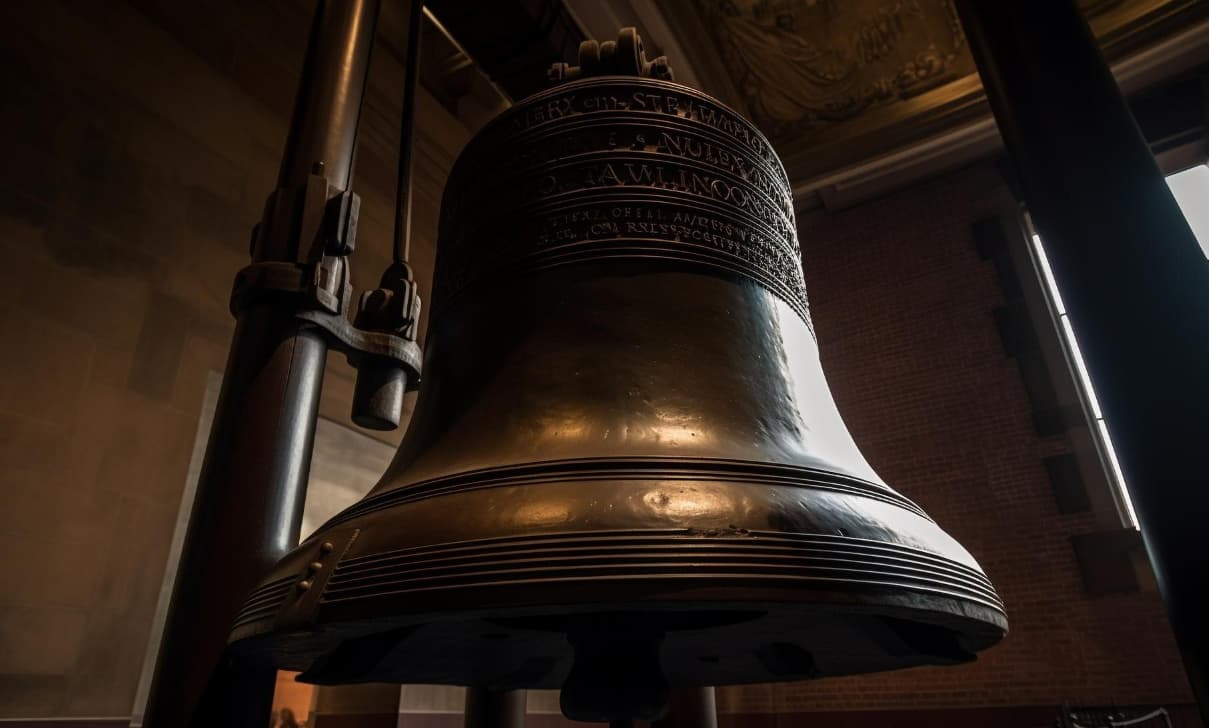Ever stumbled upon a word that seems to hold a world of mystery? That’s Clochant for you!
This ancient term isn’t just a bunch of letters – it’s a gateway to a fascinating blend of history, art, and magic.
Clochant, with its roots in Gaelic culture, has been charming folks for ages.
It’s not your everyday word – it’s got ties to magical bells, old stories, and even healing powers! From Celtic tribes to modern movies, Clochant has made quite a journey.
Clochant

Ready to uncover the secrets of Clochant? Let’s dive in and explore this captivating word together!
What is Clochant?
Clochant is an intriguing word that’s packed with meaning. At its core, it’s a Gaelic term that means “chime” or “bell”. But it’s not just any bell we’re talking about – these are special, magical bells!
The word Clochant comes from the ancient Celtic people. They believed these bells had amazing powers.
Imagine a bell that could chase away evil spirits and bring good luck. That’s what they thought Clochant bells could do!
Over time, Clochant has found its way into stories, art, and even modern culture. It’s more than just a word – it’s a piece of history that’s still alive today.
The Roots of Clochant
Clochant didn’t just pop up out of nowhere. It has deep roots in history.
Here’s what we know:
- It’s a Gaelic word
- It means “chime” or “bell”
- It talks about magical bells
- The word comes from the Celtic people, who lived long ago
The Celtic people thought these bells were special.
They believed Clochant bells could:
- Keep bad spirits away
- Bring good luck
- Bless people who heard them
Over time, people started using these bells for different things.
They rang them at:
- Weddings
- Funerals
- Birthdays
- To send messages
Even now, when we hear these old bells, it reminds us of history and makes us feel connected to the past.
Clochant in Books and Art
Clochant isn’t just about bells. It’s found its way into stories and paintings too!
In books, Clochant often means a way to another world. Some people think the sound of these bells can send messages to far-off places. It’s like the bells are talking!
You can find Clochant a lot in Irish books. Writers use it to talk about:
- Calling people to church
- Ringing at funerals
- A bell with a sweet sound
Artists like Clochant too. They put these bells in their paintings to show:
- Depth
- Mystery
- Gathering people together
In Irish art, you might see Clochant bells next to a harp or a shamrock. This shows people coming together to pray or celebrate.
How does Clochant Affect Culture?
Clochant is a big deal in some cultures, especially in Christianity. Churches use these bells to show something important is happening. They ring Clochant bells for:
- Weddings
- Special ceremonies
- Birthdays
- Funerals
- Holidays
When people hear these bells, they often feel calm and peaceful.
Many people believe Clochant bells can:
- Keep bad things away
- Bring good luck and happiness
Some folks even wear little Clochant bells as lucky charms. They think it will:
- Protect them from bad energy
- Remind them of their spiritual journey
Clochant in Old Stories
Remember how we said Clochant comes from the Celtic people? Well, there are lots of old stories about these bells.
In Ireland, people call Clochant the “bell stone”. Families would pass these bells down to their children and grandchildren. They thought it would bring:
- Success
- Good fortune
Some people even think Clochant bells can heal! They believe if you hold the bell on a sore spot, it can:
- Cure headaches
- Help with joint pain
Clochant Today
You might think Clochant is just an old thing, but it’s still around today! Here’s where you might find it:
- Movies: Films like “Inception” and “Game of Thrones” use Clochant sounds
- TV Shows: “Westworld” has Clochant bells in it
- Music: Some musicians use Clochant in their songs
- Ads: Companies use Clochant sounds to make their ads feel special
People like using Clochant because of it:
- Sounds unique
- Makes people feel calm
- Reminds them of old times
Different Meanings of Clochant
Clochant doesn’t just mean one thing. It can mean different things to different people. Here are some ways people use the word:
- A Plant: Some people say Clochant is a type of plant that can grow in many places
- A Bell Stone: In Ireland, it means a stone that rings like a bell
- A Magic Bell: Remember the Celtic meaning? Some still use it this way
- A Type of Fabric: In old French, a similar word meant a kind of cloth
FAQs:
- What does Clochant mean?
Clochant is a Gaelic word that means “chime” or “bell”. It often refers to special, magical bells.
- How are Clochant bells different from regular bells?
People believe Clochant bells have magical powers, like bringing good luck or keeping away bad spirits.
- Do people still use Clochant today?
Yes! You can find Clochant in movies, TV shows, music, and even in some cultural practices.
- What are some legends about Clochant?
Some legends say Clochant bells can heal sickness, bring good fortune, and even send messages to other worlds.
- Where did the word Clochant come from?
Clochant comes from the ancient Celtic people who lived in Europe long ago.
Also Check:
- Kelsi Mcbride 7050 St Ives Ct Jacksonville Fl 32244
- Iekşi: Boosting Your Online Presence
- U231748506 – The Fascinating Tale of Princess Zara and the Mysterious Code
- Oprekladač: A New Way to Translate Languages
- Understanding Life’s Staģes for Personal Growth and Fulfillment
- Autfitt: Your Key to a Better Life
Wrapping It All Up:
Wow, we’ve learned a lot about Clochant! Let’s remember the main points:
- It’s an old word that means “bell” or “chime”.
- It comes from the Celtic people.
- Many think Clochant bells are magical.
- You can find Clochant in books, art, and movies.
- Some people still use Clochant bells today.
Clochant shows us how words can carry history and meaning. Even though it’s an old word, it still touches our lives today.
Next time you hear a bell, think of Clochant and all the stories behind it!
I hope this article helped you learn all about Clochant! Remember, words can hold so much history and meaning.
Isn’t it amazing how a single word can tell us so much about the past and still be important today?



